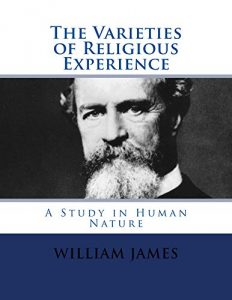- Annotated
- With footnotes
- Unique online edition
- Transcribed by hand
Before concluding that the Good News brings the good life ("The really religious person is... unshakable and full of equanimity, and calmly ready for any duty that the day may bring forth"), William James -- in his classic self-help treatise -- begins with principles of psychology and with tips for improving the mind-body connection. The American "bottled-lightning" approach to life from his day (prefiguring our own overly busy lives now, a century later) finds a cure through various means, from athletics to religion. James points to the ultimate means of testing the route to a quiet demeanor: "the sovereign cure for worry is religious faith." The multifaceted and sometimes paradoxical advice is still valid today in the search for inner peace.
- With footnotes
- Unique online edition
- Transcribed by hand
Before concluding that the Good News brings the good life ("The really religious person is... unshakable and full of equanimity, and calmly ready for any duty that the day may bring forth"), William James -- in his classic self-help treatise -- begins with principles of psychology and with tips for improving the mind-body connection. The American "bottled-lightning" approach to life from his day (prefiguring our own overly busy lives now, a century later) finds a cure through various means, from athletics to religion. James points to the ultimate means of testing the route to a quiet demeanor: "the sovereign cure for worry is religious faith." The multifaceted and sometimes paradoxical advice is still valid today in the search for inner peace.










